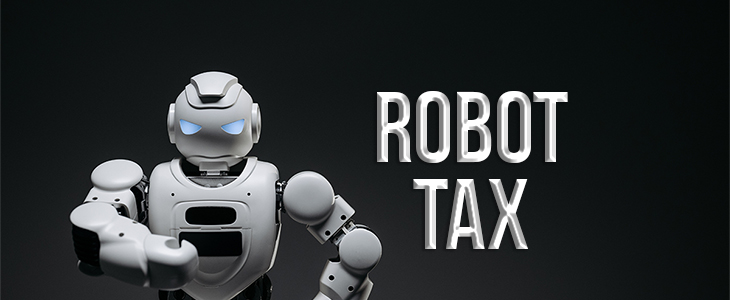South Korea’s robot tax

In 2017, South Korea enacted the world's first robot tax. The law doesn't require robots to be taxed. Instead, they have reduced the tax breaks those investments in robotics previously enjoyed. South Korea's existing automation incentives of a three to seven per cent tax deduction for businesses investing in automation are reduced by two per cent.
The South Korean Government limited the tax break available to businesses from automation, intending to slow down the growth of automation. The robot tax helps to reduce or slow down the replacement of workers by machines which helps to protect the Government's tax revenue. Every time a robot replaces a worker, the Government loses its income taxes. The damage robots and automation will do to countries' tax revenues are genuine; for example, in the US, payroll and income taxes makeup 81% of federal tax revenue.
South Korea has embraced robots to such a degree (especially in the manufacturing sector) that they have the world's highest 'robot density'. South Korea has 1,000 robots per 10,000 employees, eight times the global average. South Korea's working-age population is in decline. And South Korea is aging at the fastest rate among OECD members. Consequently, they need productivity growth to maintain the country's competitiveness and living standards.
Whether robots increase or decrease total job numbers (employment) is a hot topic for debate, with no definitive answers. What is clear is that robots both create jobs and destroy jobs at the same time. Experts predict robot workers and artificial intelligence will take a third of British jobs by 2030, with industries most at risk from automation, including transportation, manufacturing, and waste management. Robots are eliminating manufacturing and service sector jobs (which account for 70% of employment). One example is Lotteria, South Korea's biggest hamburger chain, where over half of its shops use digital kiosks to take orders. In contrast, robots are less likely to replace roles that require critical thinking and creativity. The UK Government's recent 'Made Smarter' review concluded that automation could boost UK manufacturing by £455 billion, with a net gain of 175,000 jobs over the next ten years.
"You’d be stupid not to try to cut your tax bill and those that don’t are stupid in business"
- Bono: U2




